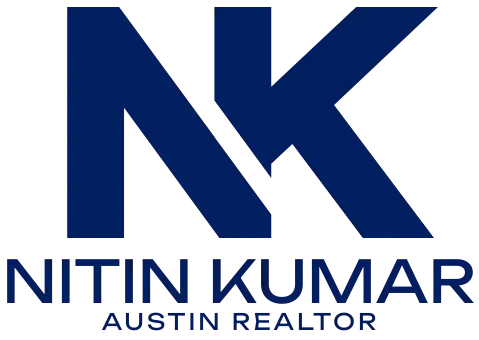Getting your first house remains a major accomplishment in life. Because house buying brings both tension and excitement, and moments of perplexity. The selection of your perfect home leads to receiving mortgage approval from the assistance programs you applied to, which brings forth another question: Do first time home buyers have to pay closing costs?
The question might seem confusing because additional expenses have likely not been part of previous discussions. Our article will provide you with everything you need to feel prepared instead of anxious.
What Are Closing Costs?

Let’s first discuss what closing costs are before delving into whether first-time home buyers have to pay closing costs. The sum of the fees, taxes, and services you pay when you complete the purchase of your house is known as closing costs. Consider them the final closing fees. Below are the main common closing costs and are distinct from your down payment:
- Processing Fees For Loans: These include the price of the loan preparation and assessment by the lender. In essence, it’s the cost of setting everything up administratively.
- Appraisal Fees: An appraiser assesses the home’s value to make sure the loan amount is appropriate. The highest amount that lenders will give is the property’s value.
- Insurance For Titles: This protects you and the lender in the event that someone later asserts ownership of your property. Comfort comes at a one-time expense and paying for title insurance will put your mind at ease.
- Fees for Home Inspections: paid a specialist to assess the state of the house. You can avoid unpleasant surprises like bad wiring or foundation issues by doing this.
- Property Taxes: I paid a specialist to assess the state of the house. You can avoid unpleasant surprises like bad wiring or foundation issues by doing this.
- Homeowner’s Insurance: Homeowner’s insurance is required by lenders to protect against natural disasters or damage to your home. At closing date, the first year is usually paid in full.
- Fees For Recording: Paid to your local government in order for the sale to be formally documented in the public domain. It works much like an official seal of approval.
- Legal Fees (In Certain States): In some states, an attorney must oversee the transaction. These fees cover that service and are usually paid at closing dates and your first move in your home.
Do You Need To Pay Closing Costs As First-Time Home Buyers?
To put it simply, first-time homebuyers must agree to pay payment and closing costs. It might surprise you, especially if you thought the down payment was the only big barrier.
The good news is that first-time buyers frequently have access to special programs, grants, and incentives that can lower or even completely eliminate closing costs. Although “no-closing-cost” private mortgage insurance are offered by certain lenders, you will have to pay interest rates that are typically a bit higher. Additionally, you may even be able to bargain with the seller to have some of your expenses reimbursed in buyer-friendly markets.
So while the answer to “Do first time home buyers have to pay closing costs?” is yes, the full story includes a lot of helpful tools and strategies to make those costs more manageable.
Do You Pay All The Closing Costs At Once As First-time Buyer?
Yes, closing costs are typically paid in full on closing day, right at the finish line. When you sit down to sign your mortgage papers and pick up your keys, everything comes together.
Your lender will send you a Closing Disclosure at least three business days before closing. This document contains a list of all costs, fees, and amounts due. It covers closing costs and your down payment.
Usually, you will bring a cashier’s check or send a wire transfer to cover the entire amount. It is therefore essential that you have that money in your account. This is the last payment needed to purchase a home, even though it might seem like a lot.
How Much Closing Costs Do You Need To Pay?

What does the term “closing costs” mean, then? Usually, these costs fall between 2% and 5% of the house’s purchase price.
Consequently, closing costs for a $250,000 home could range from $5,000 to $12,000.
Here’s a breakdown of common expenses that answers “Do first time home buyers have to pay closing costs?” with some clarity:
- Origination Fees For Loans: These amount to between 0.5 and 1 percent of the total loan amount. The expenses incurred by lenders include mortgage setup, together with application management costs.
- Appraisal Fee: $300 to $500. This tells the bank that the loan is advantageous and validates the house’s value.
- Credit Report Fee: Around $30. The price for checking your credit history exists within the loan terms, which lenders formulate according to your credit score.
- Title Insurance: Between $400 and $1,000. The registration fee safeguards your ownership rights, together with protecting you against challenges regarding previous ownership claims. Pay the title insurance fee for your ease of mind.
- Inspection Fees: Add-on inspections are optional and usually range from $300 to $500 in cost. Learning about high-cost issues in your new home becomes possible through a pre-closing home inspection.
- Prepaid Taxes And Insurance: Location-specific. Before closing a real estate sale, certain insurance premiums, together with taxes, must be paid ahead of time to escrow.
You will find loan origination fees ranging from 0.5% to 1% of the total loan sum. The fees cover the costs that lenders need to cover for mortgage applications and documentation setup.
The appraisal charge ranges from $300 to $500. The house appraisal process verifies property worth and demonstrates to the bank that taking the loan is advantageous.
Having this information beforehand allows people to create proper budgets, which also enables better preparation if you need to do a title search and more. Some programs and sellers provide assistance to reduce the costs.
Do Sellers Pay Closing Costs?
They can, and occasionally they do!
Although closing costs are usually covered by the buyer, sellers are also responsible for paying a set of fees. These types of closing costs consist of:
- Commissions Paid To Real Estate Agents (Between 5% And 6% Of The Sale Price): The largest closing costs for sellers is divided between both their agent’s fees and the fees of the prospective buyer’s agent.
- Transfer Taxes: A transfer tax emerges at the time states and local authorities execute property transfers.
- Title Transfer Fees: The administrative cost of formally transferring the home’s title to you is covered by title transfer fees.
- Unpaid Taxes Or HOA Dues: Before the sale can proceed, the seller must settle any outstanding debts.
- Agreed-Upon Credits Or Repairs: This buyer closing costs are needed for repairs or credits backed by the seller’s agreement will be borne by the seller.
Slower markets provide enough opportunity for buyers to force sellers into granting concessions on their deals. A selling agreement allows the seller to pay part of your closing expenses, which enables the transaction to proceed.
Expenses Included In Closing Costs To Be Paid By Both Parties
Depending on local regulations or the terms of your purchase agreement, the buyer and seller may split some closing costs. These closing costs can vary
Typical negotiated or shared costs vary, consisting of:
- Escrow Charges: paid to the outside business that manages the money and makes sure everyone abides by the terms of the agreement. Typically, 50% is paid by each party.
- Recording Fees: For the purpose of recording the home sale in public records, recording fees are paid to your local municipality. In most places, it’s required by law.
- HOA Dues: When homes belong to an association, both the buyer and seller divide necessary dues in accordance with the date of settlement.
- Transfer Taxes: The payment arrangement stated in the contract can have both parties sharing it or one party paying all costs.
Discussing which fees are negotiable and which you expect to pay in your area with your realtor is beneficial. Having that knowledge puts you in a better spot to understand why first-time home buyers have to pay closing costs, and which ones they might not have to shoulder alone.
Conclusion
So, do first time home buyers have to pay closing costs? Of course. But that doesn’t mean you have to face them alone or that they should surprise you.
It’s important to be ready. Your readiness to take on homeownership responsibilities improves with understanding the nature and extent of closing costs available to you. Avoid letting money going toward closing costs stand in the way of your advancement.
Remember that getting the key marks is only one stage before moving forward. The keys you receive become more than metal objects since they unlock a fresh beginning. if you want to make your homebuying journey even easier, get expert guidance by contacting us today!
FAQs
Q. Who Typically Pays Closing Costs?
A: Buyers and sellers both encounter distinctive expenses during the closing process. The typical expenses a buyer handles include the cost of inspections, title search, alongside insurance premiums and payments for lender fees. The sellers costs cover agent commissions and transfer fees. However, it is possible to negotiate for the seller to pay a portion of the buyer’s expenses, especially for first-time buyers.
Q. Do I Still Pay Closing Costs If I’m Paying Cash?
A: Yes, you will still have to pay some closing costs as a first-time buyer even if you choose not to move forward with the mortgage loan process. These consist of recording fees, lawyer fees, and title insurance. First-time cash buyers typically still have to pay closing costs, even though their overall expenses will be lower without a lender.
Q. Are Down Payments A Part Of Closing Costs?
A: Your down payment money differs from the costs needed for closing. The initial payment you make toward the home purchase cost is called a down payment, but closing costs include administrative expenses necessary to complete the property sale. If you are new home is worth $300,000 with a $30,000 down payment and $9,000 in closing costs, you will need to bring $39,000 to the closing.




